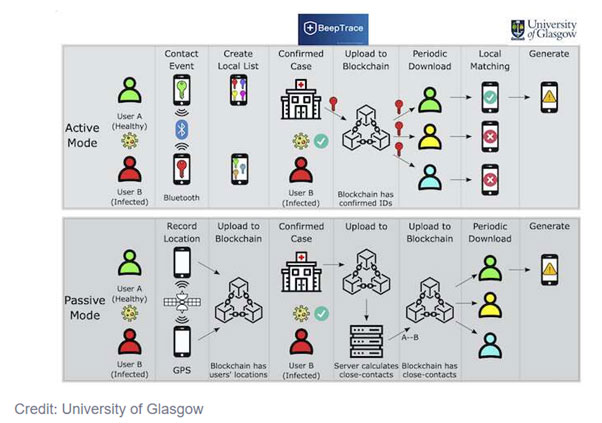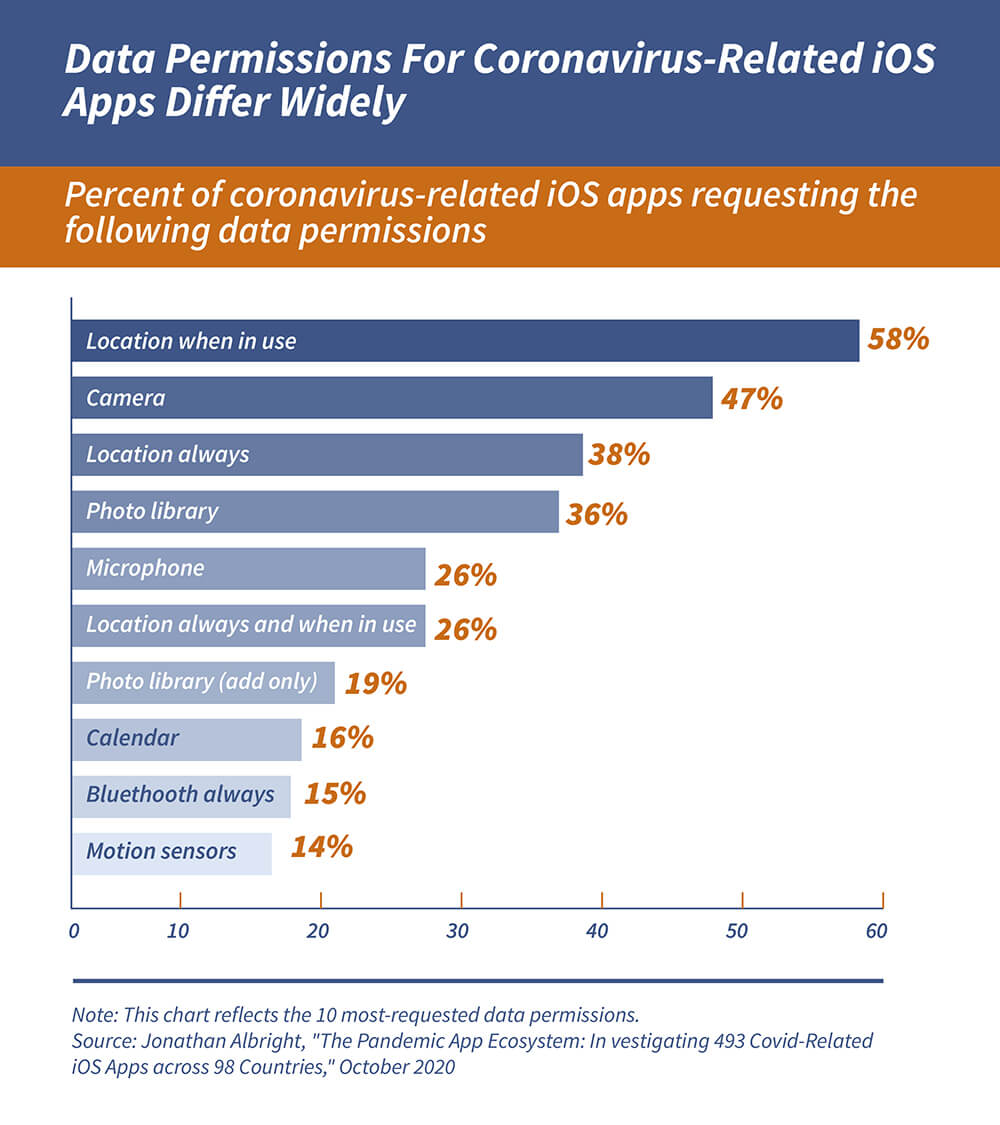Jan 12, 2021
The contact tracing app identifies and alerts people who have come in contact with a person who tested positive for coronavirus. Applying blockchain technology ensures data privacy while using the app. Read on to know more.
The COVID-19 outbreak led to an urgent need for a contact tracing solution through mobile phone applications to prevent the infection from spreading further. It is a non-pharmaceutical interventions (NPIs) approach that aims to slow down the transmission of the disease by reducing the contact rate of people in the general public.
NPIs largely target social /physical distancing, avoiding gathering of people in large groups, closing of workplaces, schools, social avenues, and restricting travels. Contact tracing has a long history in preventing infectious diseases in the early stage of epidemiology as it identifies persons who may have come into contact with an infected person and subsequent collection of further information. The major drawback is that it is a labor-intensive process and it relied heavily on the recall of the infected person.
To identify the possible spreading of the disease, we need data of the infected patients like travel history but not at the cost of individual privacy. The possible way to avail this data is to review the databases of publicly shared travel history and contact tracing apps which completely rely on users who approve to share their location. However, the public concern on privacy issues was a major concern affecting the uptake of contact tracing applications across the globe.
Here comes the importance of blockchain technology. Implementation of blockchain technology addresses the trust, privacy, security, and transparency issues associated with the existing contact tracing technologies.
Blockchain basis for contact tracing
The biggest challenge in contact tracing is about guarding the privacy of information, because the information gets collected, matched, and distributed. Protection of the identity of users with COVID-19 is of major concern, though the opt-in option is there to have control over participation.
Let’s understand how blockchain technology plays a neutral role here.
- Provides a global access platform for COVID-19 pandemic tracing and management
- Prevents the public from any misinformation by authorities or other third parties
- Bridges the patient or the user and the authorized personnel to desensitize the user ID and other related information
- Preserves privacy from a technical design perspective too rather than regulations or law
-
Protects the users’ identity through encryption and anonymization technologies
BeepTrace:
BeepTrace, the University of Glasgow researchers mobile-based system uses the unique properties of blockchain to break the chain of virus transmission while ensuring user privacy in data handling. The app has two modes of operation-active and passive as represented.
Similarly, many countries are deploying a blockchain-based app for contact tracing. To mention a few, they are:
- Honduras in Central America deploys CIVITAS.
- California deploys Coalition.
- WHO partners with Oracle, IBM, Hacera, and Microsoft
- Telos Foundation and partners with Genobank
- MYNGX helps governments and medical professionals to understand the infection in real-time

Moving forward, let’s understand contact tracing using Apple and Google’s app.
Apple and Google’s COVID contact tracing
California’s governor has launched its COVID contact tracing app to the public last December. The University of California conducted the pilot program on the app -CA Notify and made it available to individuals with compatible Android and iPhone devices. The participation in the CA Notify app is on an opt-in basis.

Apple and Google’s API leverages Bluetooth to assess contact between coronavirus positive individuals and others. The individuals who test positive enter the code received from public health authorities. The state health authorities specify details like how close and how long individuals need to be in contact to be deemed as an exposure risk. As a result, the users get an alert on their potential exposure while maintaining their identity and location.
Apple and Google have promised transparency in data-sharing practices and remain vigilant in sharing techniques, data storage methods, and protocols to earn the public’s interest and drive adoption of the CA Notify app. The app acts as a complementary tool to traditional contact tracing programs. However, its full impact will be realized depending on the users’ willingness to use it (the CA Notify app is on an opt-in basis).
To conclude…
Blockchain solution provides a framework for authorities, companies, research institutes, and governments, across the world for tracing information sharing and win the fight against the COVID-19 pandemic. Blockchain is human-centric, convenient, and promising. These kinds of protocols will mitigate future pandemic to a greater extent.
As we witness the 2nd wave of Coronavirus already in some parts of the world, implementation of blockchain technology for contact tracing will be more beneficial.










